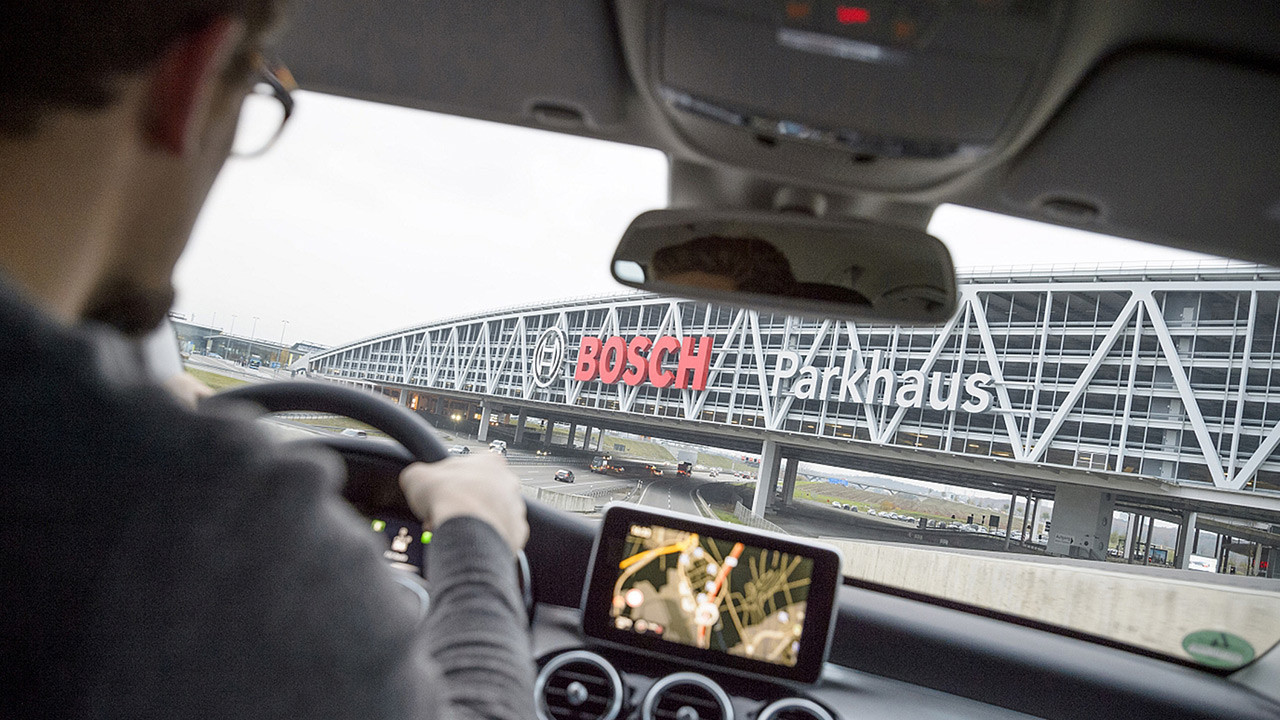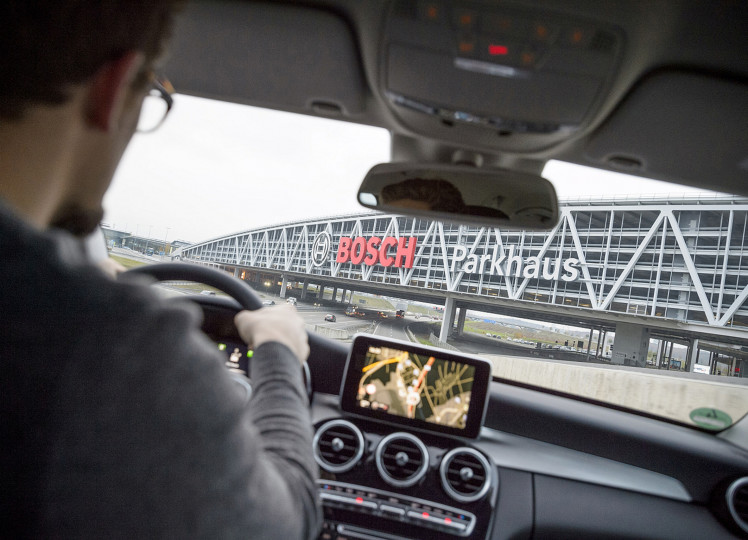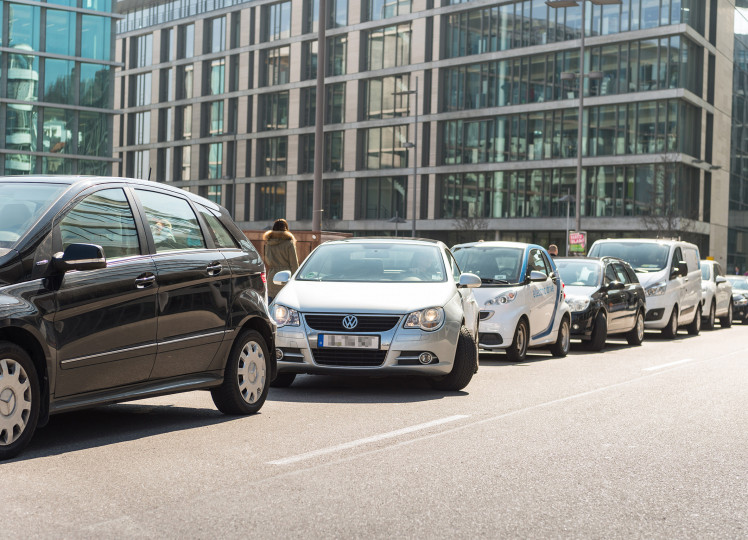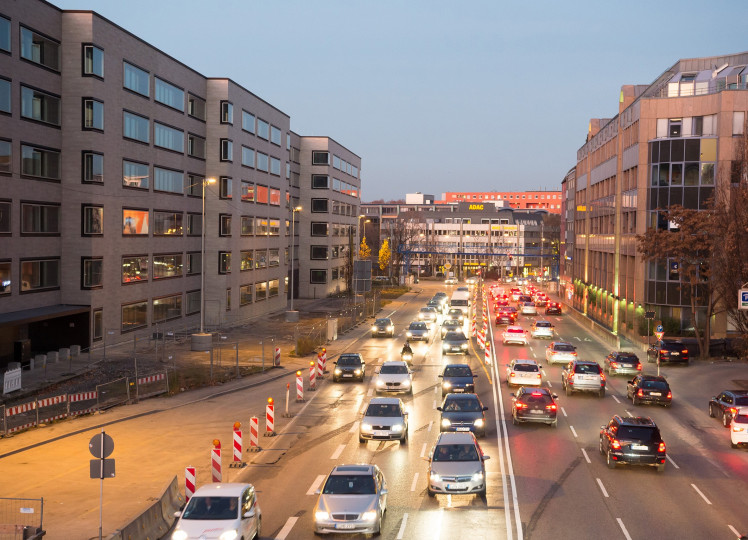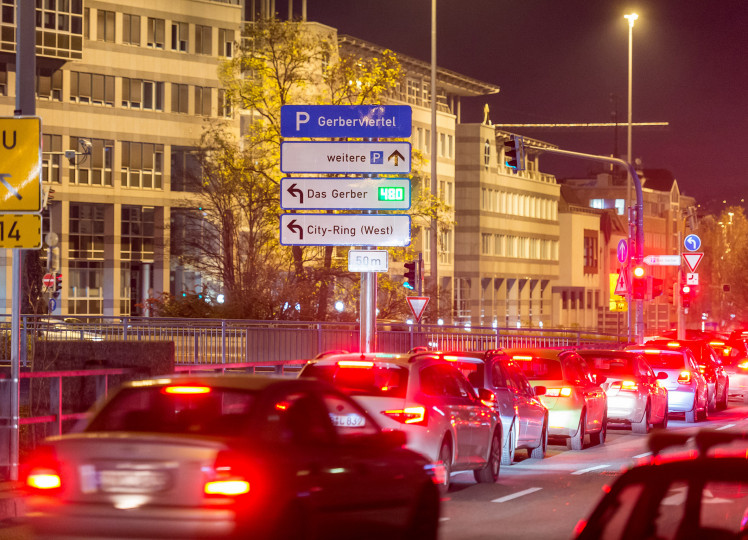Stuttgart – Bosch is tapping a whole new market by offering parking technologies and services. In doing so, the supplier of technology and services takes a standardized approach: Bosch is simplifying the search for parking spaces and is gradually automating the parking process. “The mobility of the future starts today – with smart parking,” says Dr. Dirk Hoheisel, member of the board of management of Robert Bosch GmbH, commenting on the technology’s significance. Potential customers for Bosch parking solutions include vehicle manufacturers and parking garage operators as well as cities and communities around the globe. The company has already made major achievements in this area, especially with its systems for automated parking and driving; this progress is also moving Bosch toward an important milestone this year. “In 2016, our sales in driver assistance will exceed one billion euros,” says Hoheisel. Worldwide, almost 2,500 Bosch engineers – some 500 more than last year – are working to further develop driver assistance systems and automated driving.
Half of all new cars come with a parking assistance system
As part of the move toward fully automated parking, over the next few years Bosch plans to launch a host of parking assistance systems. These systems help drivers park accident-free, or even completely guide them into a space at the touch of a button. In Germany, parking assistance systems are the most common assistants in today’s cars. According to a Bosch evaluation of the 2014 vehicle registration statistics, of the nearly three million cars that were registered that year, half of them (52 percent) feature just such a system. The picture is fairly similar in other countries: in Belgium and the Netherlands, half of all new cars in 2014 (50 percent) came equipped with a parking assistant. In the U.K., the figure is 19 percent. These systems are mainly based on ultrasonic sensors, which Bosch has been making since 1993. Bosch has been making the ultrasonic sensors critical to these systems since 1993.
Bosch services relieve drivers of the search for parking
For Bosch, automated parking begins in the vehicle – but it goes much further than that. “In offering intelligent services, Bosch also takes on the often arduous task of looking for available parking, thereby saving time and reducing stress,” Hoheisel says. In Germany, it takes an average of ten minutes to find a parking space. Bosch shortens this search in two ways: one, special occupancy sensors in parking lots or garages detect and report empty spaces. Two, Bosch uses the sensors that are becoming standard in an increasing number of vehicles and employs them in the search for curbside parking. The information is processed in the Bosch IoT Cloud to generate digital maps of parking spaces. Drivers can access the maps, for instance online or via their vehicle’s navigation system, and let themselves be guided directly to areas with free parking spaces. “Having cars drive directly to available parking spaces will also mean a reduction in pollution,” Hoheisel points out. On average, drivers in Germany today clock up as many as 4.5 kilometers in unnecessary driving each time they look for parking.
In the future, a night out at a concert no longer starts in a parking garage
“Parking as we know it today won’t exist in the future,” Hoheisel says. Even before the end of this decade, cars will drive themselves to a space in a parking garage, thanks to Bosch technology. Drivers will simply leave their car in a handover zone outside a parking garage and instruct it by smartphone, for example, to search for a parking space. When ready to leave, they call the car back to the drop-off point in the same way. “Going to a concert no longer means starting and ending your evening in a drafty parking garage,” Hoheisel says. This innovation is made possible by smart Bosch technology present in the vehicle and parking garage as well as the communication between the two. “Fully automated parking will be ready for production before fully automated driving,” Hoheisel says. Another reason parking will be realized first is that the legal hurdles for introducing fully automatic parking are easier to surmount, especially with regard to vehicle registration requirements. The necessary adjustments to regulatory law, which in Germany is in part aligned with the Vienna Convention on Road Traffic, are on political agendas around the world.
Mónika Hack
+36 70 510 5516
Bosch has been present in Hungary since 1899. After its re-establishment as a regional trading company in 1991, Bosch has grown into one of Hungary’s largest foreign industrial employers. In fiscal 2015, its nine Hungarian subsidiaries had a total turnover of HUF 959 billion and sales of the Bosch Group on the Hungarian market – not counting trade among its own companies – was HUF 246 billion. The Bosch Group in Hungary employs some 12,200 people (as per January 1, 2016). In addition to its manufacturing, commercial and development business, Bosch has a network of sales and service operations that covers the entire country.
The Bosch Group is a leading global supplier of technology and services. It employs roughly 375,000 associates worldwide (as of December 31, 2015). The company generated sales of 70.6 billion euros in 2015. Its operations are divided into four business sectors: Mobility Solutions, Industrial Technology, Consumer Goods, and Energy and Building Technology. The Bosch Group comprises Robert Bosch GmbH and its roughly 440 subsidiaries and regional companies in some 60 countries. Including sales and service partners, Bosch’s global manufacturing and sales network covers some 150 countries. The basis for the company’s future growth is its innovative strength. Bosch employs 55,800 associates in research and development at 118 locations across the globe. The Bosch Group’s strategic objective is to deliver innovations for a connected life. Bosch improves quality of life worldwide with products and services that are innovative and spark enthusiasm. In short, Bosch creates technology that is “Invented for life.”
Additional information is available online at www.bosch.hu

